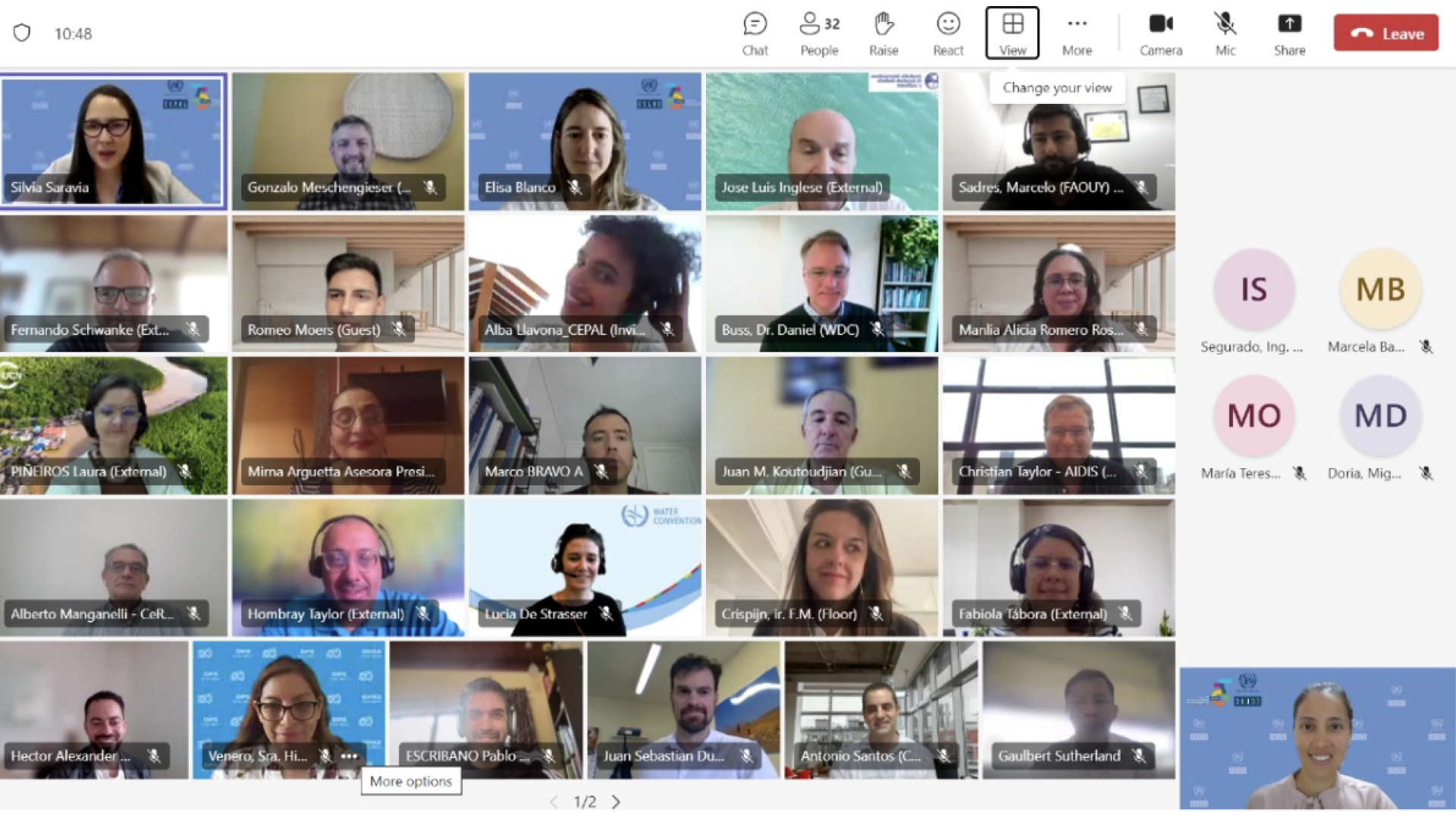Briefing note
ECLAC honours the Inter-American Water Day through its participation in the webinar "Water unites us", organized by the Andean Health Organization
On Thursday, November 3rd, in the context of the celebration of Inter-American Water Day, the webinar "Water unites us" was held, organized by the Andean Health Organization - Hipólito Unanue Agreement (ORAS-CONHU), an institution constituted by the countries Bolivia, Chile, Colombia, Ecuador, Peru and Venezuela. This event is part of a series of weekly webinars that have been developed since May 2022 to promote mutual learning on an ongoing basis. The ORAS-CONHU webinars have an average participation of 500 people from different countries such as Bolivia, Chile, Colombia, Ecuador, Peru, Venezuela, Argentina, Cuba, Mexico, Costa Rica, Dominican Republic, among others.
The event began with opening words from Mrs María del Carmen Calle, Executive Secretary of ORAS-CONHU. Subsequently, prominent panelists participated, including Ms Marina Gil, from the Natural Resources Division of ECLAC, Mr Eduardo Ortiz from PAHO/WHO, and Mr Alberto Lora from the Andean Community. Finally, a dialogue was held based on the questions asked by the participants, moderated by Mrs Bertha Luz Pineda from ORAS-CONHU.
ECLAC's presentation began with the presentation of the water scenario in Latin America and the Caribbean, where it became clear that there are still significant gaps in achieving universal access to safely managed drinking water and sanitation. Similarly, the region is vulnerable due to the effects of climate change, presenting high levels of water stress. Then, the regional progress in terms of SDG 6 was presented. It was indicated that for the goals for which data is available, slow progress can be seen and in some cases, even negative progress is presented, moving away from the expected results set for 2030.
Within the context, Ms Marina Gil proceeded to highlight ECLAC’s proposal to achieve a sustainable and inclusive water transition in order to achieve i) the human right to water and sanitation without leaving anyone behind, ii) increase equal access and affordability in tariffs, eradicating water poverty, iii) elimination of negative externalities (conflicts, pollution and overexploitation) and iv) developing circular economies through the water value chain. He also commented on the actions and initiatives promoted by ECLAC to accelerate the implementation of SDG 6, which have as their starting point the global acceleration framework of SDG 6, which is based on five pillars: financing, data and information, development skills, innovation and governance.
The webinar was broadcast online on its YouTube channel, where the recording can also be found.
The responses of the participants emphasized the role of inherited knowledge and the private sector in the regional progress towards the fulfillment of SDG 6.



